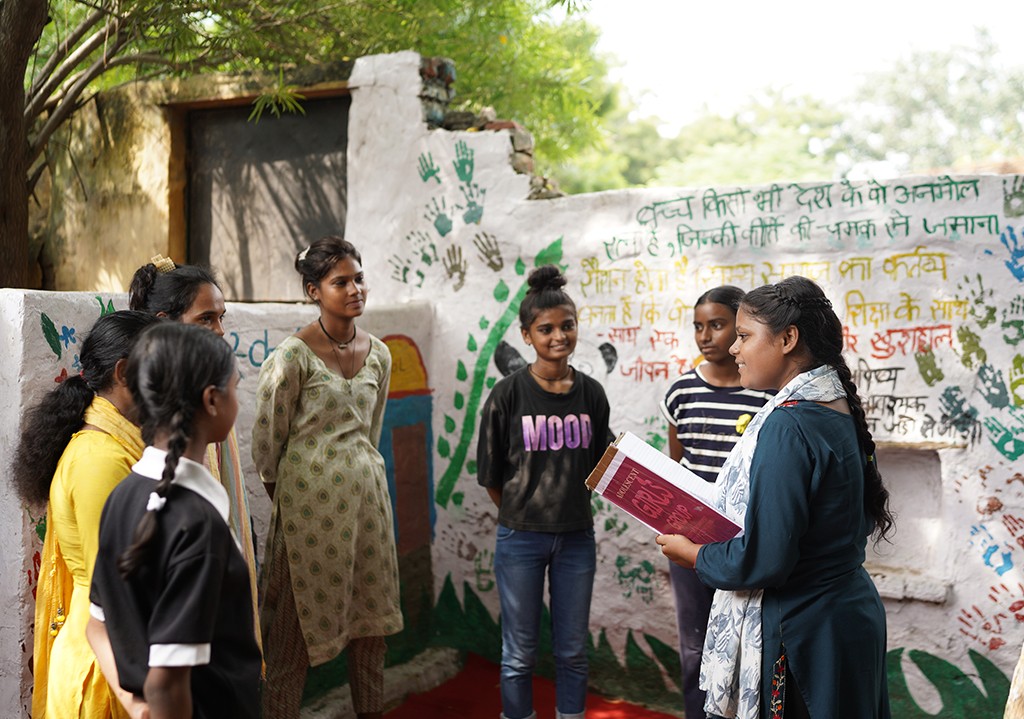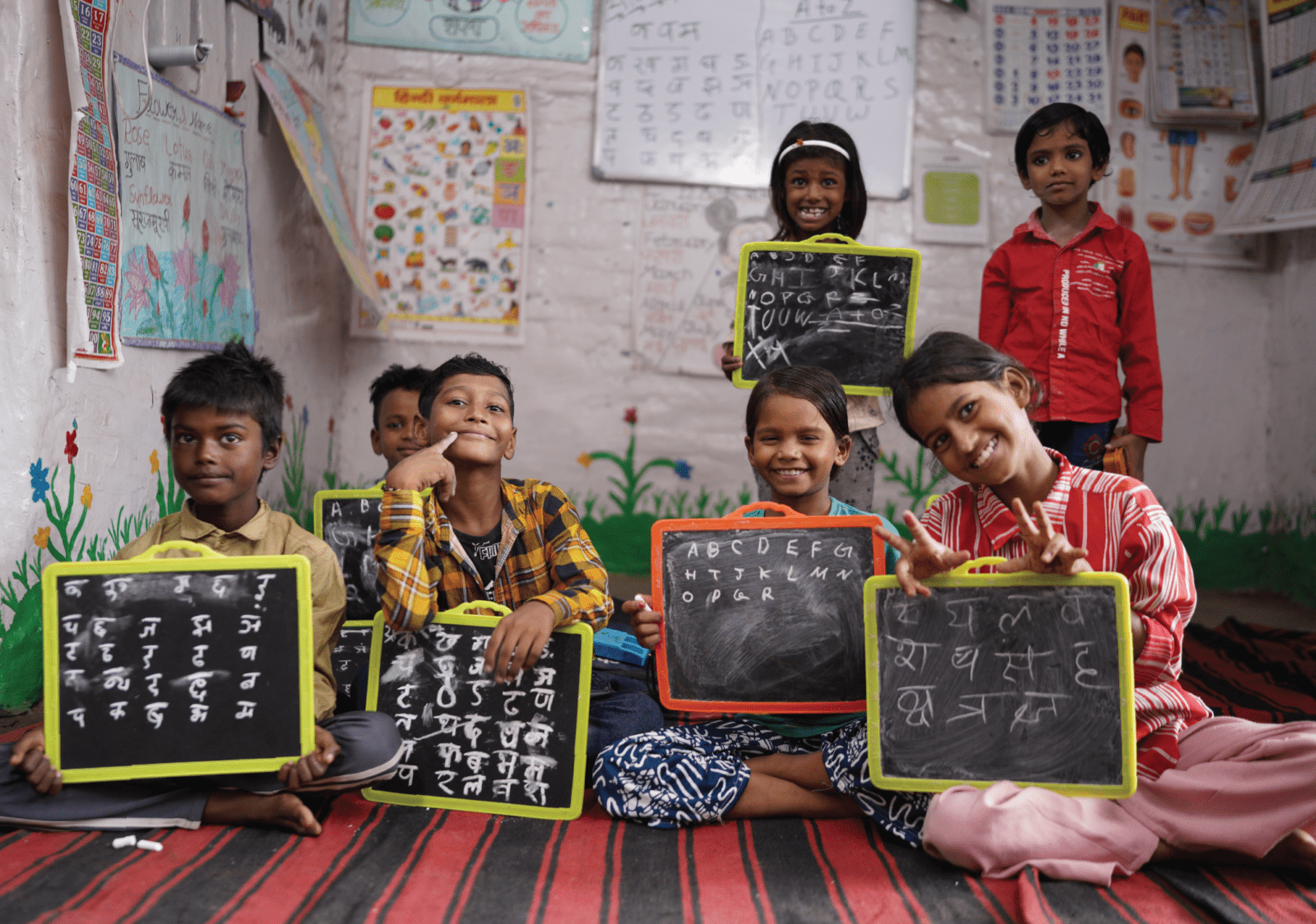In the recent years, mental health conditions have garnered attention in global forums and discourse. The impact of these uninhibited conversations have led to discussions about mood disturbances, anxiety disorders, attention deficiency and more become a part of family gatherings, chatter with friends and more. While it is a good indicator of rising awareness, there is more ground to cover when considering the impact of mental health on adolescent children and young adults.
If left unaddressed, mental health conditions have the potential of taking shape as adjustment problems in adolescents and young people, even disturbing their social and economic integration, including employability. Researchers and mental health experts have reiterated that a multi-pronged approach spanning familial, social and cultural spheres is required to tackle mental health conditions among young adults.
Given below are some ways sourced through Railway Children India’s field experience, that could prove helpful to adolescents and young adults in coping with varied mental health conditions.
1. Nurturing a Safe Environment for Open Conversations
A safe environment sets the tone for open, uninhibited conversations. In a chaotic world today, where the chase for likes on social media trumps mental piece, it can become claustrophobic for adolescents and young adults to openly communicate their feelings. The first step, therefore, needs to be nurturing safe spaces at homes, schools, and online. Ample awareness, normalized conversations and active listening characterize these safe spaces.
At home, parents must can the emotional turbulences, acknowledge them and provide support by simply being present. Schools can go a step ahead in establishing codes of conduct especially around sensitive subjects such as bullying. Online spaces require heightened safety and protection with cyber-bullying policies in place.
Many children like 12-year-old Kapil (name changed) flee their homes in a fit of rage, but our Child Help Desks at railway stations provide a safe environment for them to share their inner turmoil and understand the gravity of safety.
2. Take and Give Time to Talk, Listen and Support
Adolescence means independence! Parents must give their teens the appropriate time and space to explore, learn and be their own. Needing space is a normal part of growing up, parents should accept that instead of resisting their demand for independent time and space. Going a step ahead, parents can support and encourage their teen’s hobbies. If they feel frustrated or stuck between choices, parents must work with them to brainstorm on providing solutions to their problems.
Feeling stifled in homes teeming with toxic behaviours, it is common for children to flee their homes and find solace in child labour. They look at it as a step in freedom and a step away from inhibitions. However, once the right sources intervene and diffuse the tensions at home, both parents and children realise the importance of giving freedom and utilizing it well.
3. Conflict Resolution and Damage Repair need Special Attention
In teenage households, conflicts are aplenty, and that’s normal. What makes the difference is its timely and mannerly resolution. Shouting matches with barely bring resolution. Neither will an elaborate defence strategy of pre-planned conversations.
What does bring resolution is calmly putting forth the opinions, no matter how divergent they may be. Avoiding heated conversations, avoiding power struggles, being empathetic, honest, and transparent are key.
Children hailing from loveless families find communication challenging. Having never experienced a caring understanding tone, they then hesitate to share their struggles even to those who’re willing to offer help. These incidents routinely occur at transport hubs where we have a presence.
4. Treating Adolescents as Equal
Adolescents often face the burden of being older then children but younger than adults. This uncomfortable space between the inexperienced and the experienced can prove stifling for them. This space further becomes stifling when they’re routinely reminded of their inabilities and inexperience.
Empathize, listen, remember you were once their age and understand. Give them the freedom to be, accept them as individuals and treat them like you would expect them to treat you and the mental tangles will begin to resolve.
5. Promoting Healthy Habits
Given their age, young adults and adolescents often overlook the importance of leading an active lifestyle. The peer pressure to engage in scores of problematic activities leads them further to fall prey to debilitating mental health. In such scenarios, it becomes all the more important to promote activities that they thoroughly enjoy.
This could mean taking a dip in the pool for some, a sprint for some others, bringing alive a canvas for some, and devouring a novel up until late for some others. Parents must help adolescents channelize their energies in seeking activities that will promote healthier mental health.
Children who stay at childcare institutions for short-term or long-term durations are seen to flourish more being able to perform activities such as painting, drawing, reading and more. Gradually, these activities improve their mental health and prepare them to be reunited with their parents and give them a new chance.







